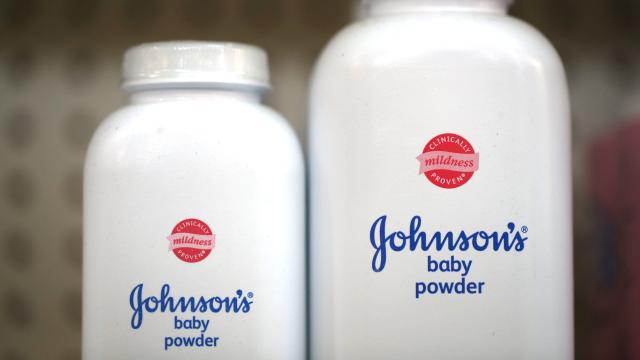Johnson & Johnson announced a voluntary recall of its talc-based baby powder products on Saturday, after the U.S. Food and Drug Administration found traces of cancer-causing asbestos in sample testing. The recall follows legal losses and an investigative report linking asbestos exposure to the company’s talc products.
The recall will affect only one lot of baby powder, which still amounts up to 33,000 bottles. According to the company, it was prompted by the FDA finding “sub-trace levels of chrysotile asbestos contamination” in a sample taken from a bottle bought online; another lot tested by the FDA turned up negative. There seem to have been no reports of injury linked to the products. But in a statement by the company Saturday, the company said that the recall was made “out of an abundance of caution.”
Editor’s Note: It is unlikely that these recalled bottles were sold in Australia.
The company added that it “has a rigorous testing standard in place to ensure its cosmetic talc is safe and years of testing, including the FDA’s own testing on prior occasions — and as recently as last month — found no asbestos.”
Last December, however, an investigative report by Reuters uncovered evidence showing that the company knew for decades that some of its own and independent tests had detected asbestos in its products; J&J also took steps to conceal these results from the public as well as the FDA, Reuters reported. The company has outright denied these allegations and argued that the overall scientific evidence does not point to a link between talc-based consumer products and cancer.
However, there’s thought to be no safe level of exposure to asbestos in humans. And because talc is often mined near sources of asbestos, there’s always a risk of cross-contamination.
This March, a jury sided with a California woman who argued that she had developed cancer from decades of using J&J’s baby powder, awarding her $43 million; the company also failed to overthrow a $7 billion verdict rendered in another case involving 22 women last December. The plaintiffs in these more recent cases, unlike previous attempts to sue the company over its baby powder products, have explicitly argued that talc-related asbestos could have caused their cancer.
In 2018, the FDA embarked on a new fact-finding mission, testing a variety of talc-based cosmetic products for asbestos. While a final report is still pending, the agency has periodically sent public advisories and pushed for recalls of products that contained asbestos.
In June, for instance, the cosmetics store Claire’s announced a recall of products that the FDA had detected asbestos in, while another recall by Beauty Plus Global followed in September.
